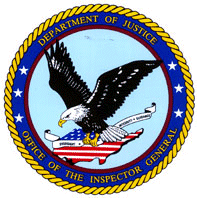
 | THE CIA-CONTRA-CRACK COCAINE CONTROVERSY: |
Appendix A: Background on United States Funding of the Contras
In examining the allegations in the Mercury News and elsewhere, it is important to understand the timing of funding of the Contras by the United States. The following dates explain the periods during which the United States government provided funding to the Contras or cut off such funding.
Anastasio Somoza Debayle was the leader of Nicaragua from 1967 until July 1979, when he was overthrown by the Sandinistas. When President Ronald Reagan took office in January 1981, he promptly canceled the final $15 million payment of a $75 million aid package to Nicaragua, reversing the Carter administration's policy towards Nicaragua. On November 17, 1981, President Reagan signed National Security Directive 17, authorizing provision of covert support to anti-Sandinista forces. On December 1, 1981, Reagan signed a document intending to conceal the November 17 authorization of anti-Sandinista operations. The document characterized the United States' goal in Nicaragua as that of interdicting the flow of arms from Nicaragua to El Salvador, where leftist guerrillas were receiving aid from Sandinista forces.
In late 1982, Edward P. Boland, Chairman of the House Select Committee on Intelligence, introduced an amendment to the Fiscal Year 1983 Defense Appropriations bill that prohibited the CIA, the principal conduit of covert American support for the Contras, from spending funds "for the purpose of overthrowing the government of Nicaragua." However, the CIA could continue to support the Contras if it claimed that the purpose was something other than to overthrow the government. In December 1983, a compromise was reached and Congress passed a funding cap for fiscal year 1984 of $24 million for aid to the Contras, an amount significantly lower than what the Reagan administration wanted, with the possibility that the Administration could seek supplemental funds later.
This funding was insufficient to support the Administration's "Contra program" and the decision was made to approach other countries for monetary support. In April 1984, Robert McFarlane convinced Saudi Arabia to contribute $1 million per month to the Contras through a secret bank account set up by Lt. Col. Oliver North.
In October 1984, the second Boland amendment took effect. It prohibited any military or paramilitary support for the Contras from October 3, 1984, through December 19, 1985. As a result, the CIA and Department of Defense (DOD) began withdrawing personnel from Central America. During this time, however, the National Security Council continued to provide support to the Contras.
In August 1985, Congress approved $25 million in humanitarian aid to the Contras, with the proviso that the State Department, and not the CIA or the DOD, administer the aid. President Reagan created the Nicaraguan Humanitarian Assistance Office (NHAO) to supply the humanitarian aid. In September 1985, Oliver North began using the Salvadoran air base at Ilopango for Contra resupply efforts.
On October 5, 1986, a plane loaded with supplies for the Contras, financed by private benefactors, was shot down by Nicaraguan soldiers. On board were weapons and other lethal supplies and three Americans. One American, Eugene Hasenfus, claimed while in custody that he worked for the CIA. The Reagan Administration denied any knowledge of the private resupply efforts.
On October 17, 1986, Congress approved $100 million in funds for the Contras. In 1987, after the discovery of private resupply efforts orchestrated by the National Security Council and Oliver North, Congress ceased all but "non-lethal" aid in 1987. The war between the Sandinistas and the Contras ended with a cease-fire in 1990.
Although the Contras were often referred to as one group, several distinct factions made up the Contras.
In August 1980, Colonel Enrique Bermudez, a former Colonel in Somoza's National Guard, united other former National Guard officers and anti-Sandinista civilians to form the Fuerza Democratica Nicaraguense (FDN). This group was known as the Northern Front because it was based in Honduras. In February 1983, Adolfo Calero became the head of the FDN.
In April 1982, Eden Pastora split from the Sandinista regime and organized the Democratic Revolutionary Alliance (ARDE) and the Sandinista Revolutionary Front (FRS), which declared war on the Sandinista regime. Pastora's group was based in Costa Rica and along the southern border of Nicaragua, and therefore became known as the Southern Front. Pastora refused to work with Bermudez, claiming that Bermudez, as a member of the former Somoza regime, was politically tainted. The CIA decided to support the FDN and generally declined to support the ARDE.
#####
 | THE CIA-CONTRA-CRACK COCAINE CONTROVERSY: |
 | THE CIA-CONTRA-CRACK COCAINE CONTROVERSY: |